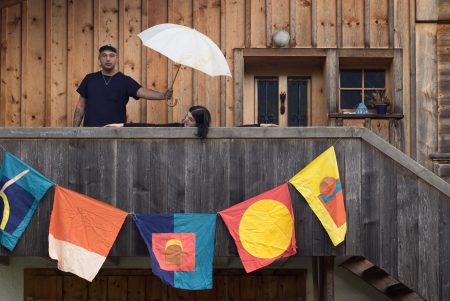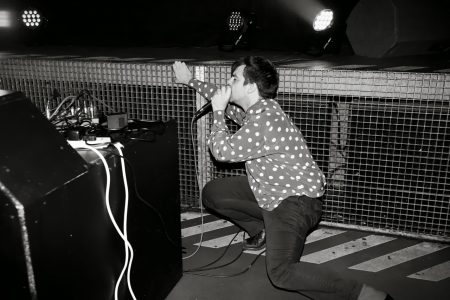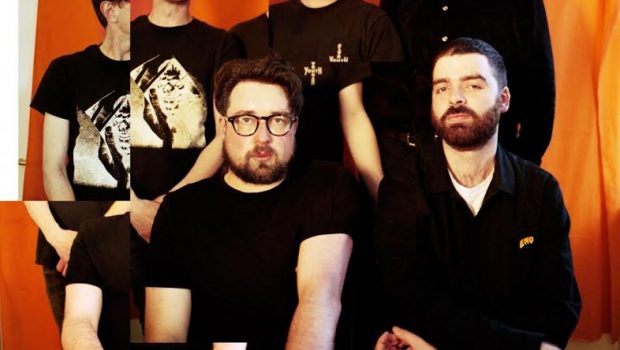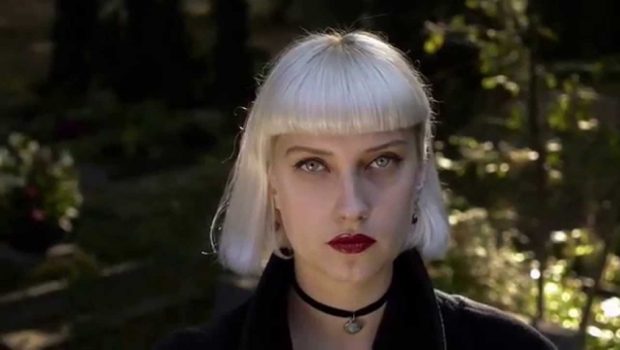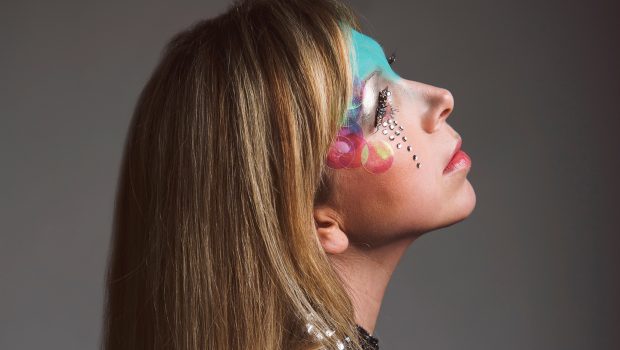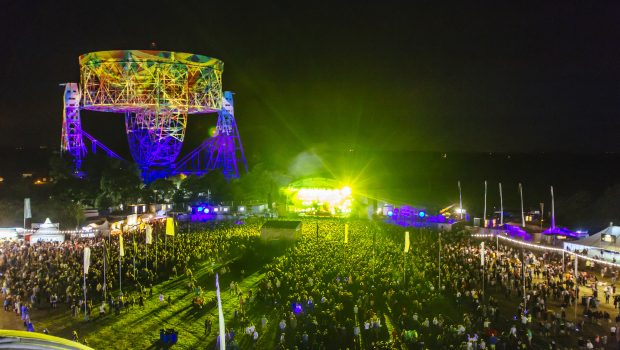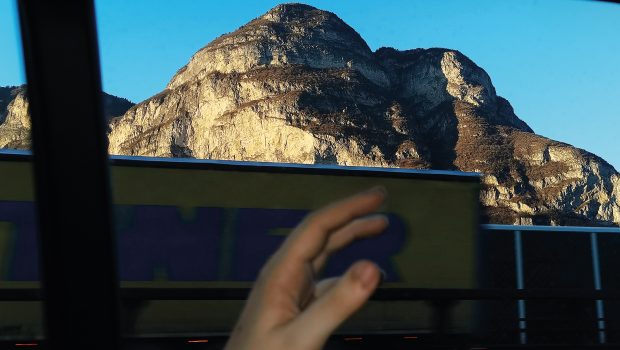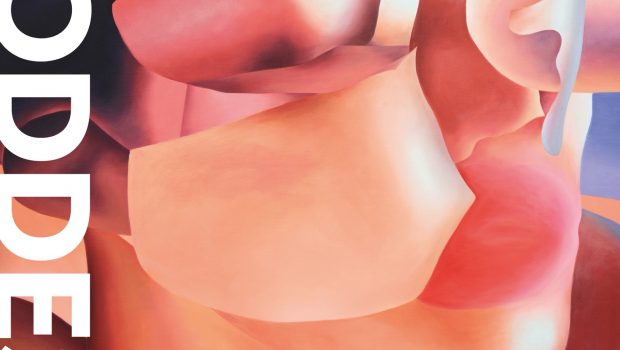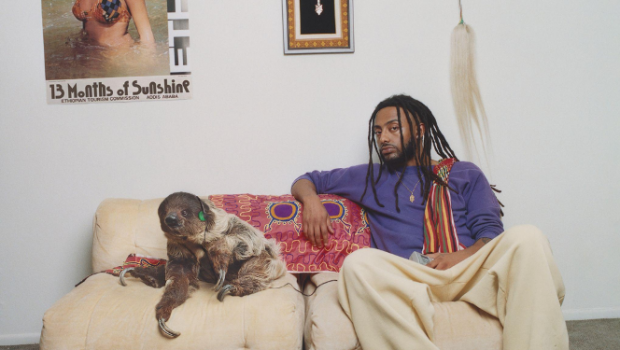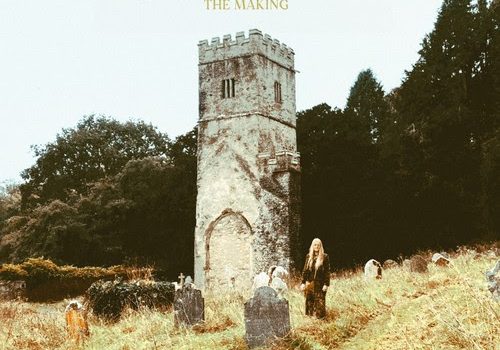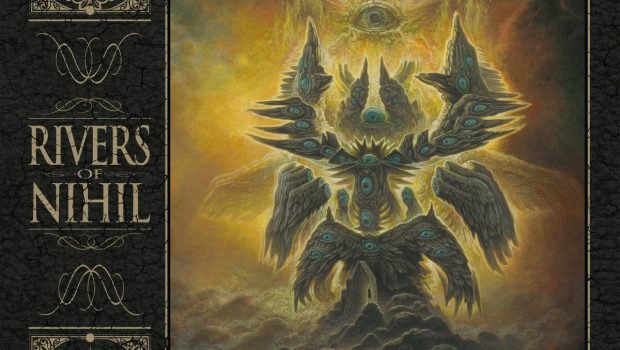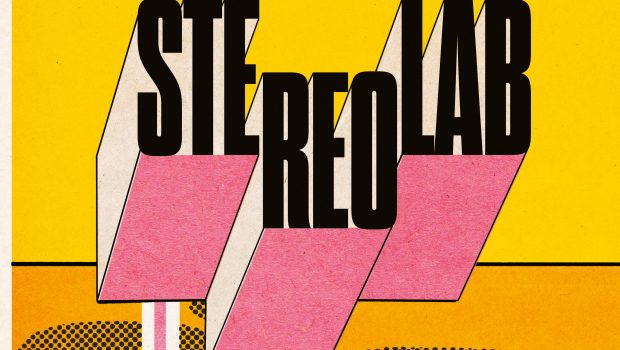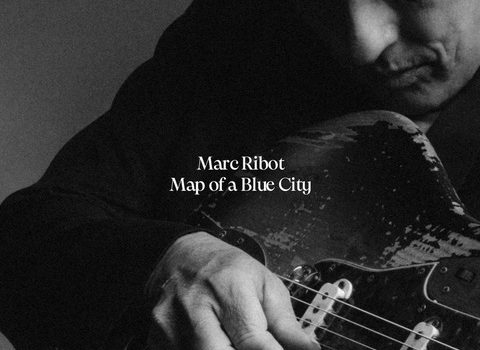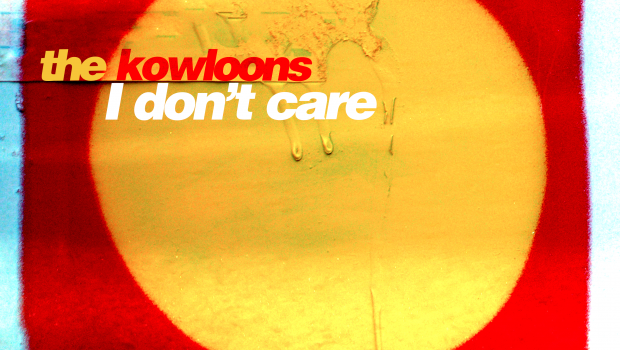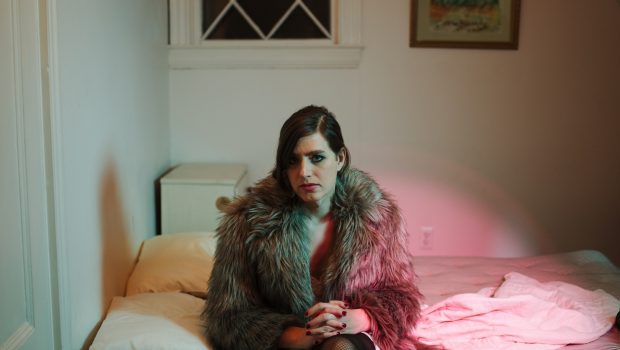-SOUP KITCHEN, MANCHESTER-
In detailed album reviews from The Quietus, Virginia Wing receive strong praise. There is particular attention paid to the careful vocal blend of singer Alice Merida Richards, and also the various references their music nods towards (Broadcast and Stereolab to name two). Detachment, haze and dreaminess are all considered key elements of their music.
But equally, to pin them down even roughly into one genre is tricky. Simon Jay Catling bends away from genres, identifying instead the “stylistic meditations” of 2014’s debut Measures of Joy as “cyclical repeato-rock, synthetically-manipulated shoegaze, 90s-inspired hauntology”. The latter in particular intrigues me as a description. It might be an offhand way of Catling relating it to other bands that experiment with synth sounds and nostalgia, but were he to expand on it further it could open up interesting readings of the band’s music. A number of musicologists drew on hauntology from philosophy, spotting it in places where a sense of nostalgia for an absent or lost future could be found, where temporal mismatches could be felt (or, heard). Samples from old or found sources might help to create this, sometimes accompanied with the sound of unsteadiness or breakdown, like hisses or scratches. UK music is particularly tied to this concept, with some suggestion it muses on futures of Britain that have never materialised. As Danijela Bočev notes of 2016’s Forward Constant Motion, patches of ASMR and field recordings are dotted around. The title rings ironically under this critical take, suggestive of a straightforward linearity when in fact the music might be presenting us with jarring feelings about time. Their latest album Ecstatic Arrow is yet to be released in full, but this name fits nicely into the semantic field of their titles, of time, movement and measures.
Some of their lyrics are further example that these themes are at heart. ‘Hammer In Nail’ from their second album opens tersely, “Start the count/Always measuring/With caution/Too often wrong”, as though musing on human error and our awareness of it, our subsequent tentativeness. Or perhaps it’s the inevitably erroneous mechanics of the clock, the quartz subject to change and to losing track of time. In ‘Future Body’, that similar idea of time unravelling without much sense of chronology: “Feeling like time come apart/Broken in two, no longer an arc/It’s a circle without a start/It’s a choice made on your behalf”. But this feels more personal, not a general sense of absent time or times lost that make up hauntology, but a hint to decisions made in absentia, at bodies spoken for. That these lines transition into “Falling in place so intimately/Living inside my future body” seems a contradiction to what has just been said, a predicted and refreshing bodily escape that is perhaps even posthuman but maybe not a rumination on an existence that never came to be. Whatever the themes to be explored are, or the statements made, the moods seem to float and often feel that bit amorphous.
However unplaceable the moods created are, there is something very present about the vocals and instrumentation, distorted or machine-based they may be. I am excited to feel this in front of me. Vocalist Alice Merida Richards is the centre of a lateral lineup on the small stage. She wears a white boiler suit with a downwards arrow sketched on one leg, which seems to be a nod to the latest album (though you might imagine an ‘ecstatic arrow’ would point up – I guess it’s a thought out subversion, a small hint at moods not being quite as they seem or complimented by their opposites). She along with Sam Pillay and Christopher Duffin (Xam Duo) each have a musical desk of sorts. In the beginning, Richards sings head to one side with affected vocals, and when she turns her head to the crowd it is gently intense. The lines “is it luck that the body can absorb more shocks than electricity?” stick with me. There are bangs and jangles from the Roland S-555, and Richards hops from side to side, taking up space in her third of the stage with lunges and arms above the head. The next song is bassier with a thicker grunge to it, but Richards brings in reverbed dove-like vocals, with consequent synth followed by a beat breakdown and some puffs of sax. Richards reminds me of a mime or some kind of radical clinician. Her white is standout against the black backdrop, stage and t-shirts of her bandmates, and though I think it’s a cliché that the lead vocalist should take our attention, she commands it subtly and without dimming the focus on Pillay or Duffin.
During the third song, Pillay brings out a bass guitar, and the lyrics “I’m always waiting to be told” I read as a comment on expected gendered submissiveness. The next song I know to be the teaser single from Ecstatic Arrow, ‘The Second Shift’, with a sax intro and a softly bouncing beat. The opening lines, “Don’t ask me for advice/I’ll give it to you every time” feel like a scathing slight against mansplaining, achieved by Richards co-opting a man’s voice. Alternatively it might be the guidance she’d have for men were they inclined to ask her. Maybe, even, it is suggestive of ‘the mental load’, a term in feminism for women’s burden to know the clockwork order of domestic and emotional labour, the task of having to prompt and advise whilst being labelled the nag. In a Pitchfork review, Richards comments on the song’s meaning, its lyrics “about society’s tendency to diminish and undermine women’s contributions to… everything”. The voice seems to morph into self-assured woman: “I know the key/it’s written in my own body” (the first two words are repeated as though to emphasise the voice’s certainty of self). The song’s title is presumably linked to the 1989 book of the same name, where the phrase refers to the labour performed by employed women, the work done outside of formal labour hours. Though I haven’t read it, the phenomenon is well-known in contemporary feminism, if perhaps a little less acute now in some places (though definitely present en masse). The song is structurally quite simple but beautifully looped and layered, with a great clarity of thought and use of language, referential but authentic.
A drawling synth intro sets off where ‘The Second Shift’ finishes. My friend suggests it sounds a bit like the intro to ‘Windowlicker’. It then becomes heavy and metallic suddenly, I imagine the amplified sound of tinfoil rubbing against a Brillo pad, and of rainforest birds and insects talking at once, high-pitched and crunching. The next is a partial contrast, a mix of watery and popping sounds. Richards is a master of holding the mic wire and looping it as she moves vertically. She tiptoes to the edge of the stage and reaches the wire out before reverting back and bobbing on her knees. The sax comes back into the thickly textured arrangement as though everything is being intentionally stuffed into the amps, and Richards follows her arrow downwards to lie on the floor.
This is a very good band, one of the best I have seen in some time, and I want more people here. Richards makes me think about women performers, myself and others, how cool it can be when we navigate stages in unapologetic ways. The final song winds into distortion with some layers being removed but with those remaining swelling and echoing round the room. Those of us here love it and are whooping as they leave the stage.
There is a short break before the next act, I delve back downstairs midway through the first song. Glaswegian one-man Apostille (Michael Kasparis) is tonight performing with bassist Moema ‘Lady Neptune’ Meade. He wears a red PVC jacket and is instantly wriggling around the stage, with Meade also donning red head-to-toe. Just before I left I’d been listening to Arca, wearing a red latex exercise band around my torso, so they feel kindred to me. There is a moment of things falling apart, a squealing scream before it crescendos out. It seems Kasparis – in his own way – is, like Richards, into lunging. He has the punch and urgency of someone like David Byrne, and the charisma to boot. He curls the jacket over his head, then moves his body from his table of wiry pads and pedals to the floor adjacent. The beat in the second song has moments of the Art Attack theme tune, and I suppose a similar colour scheme, Neil Buchanan’s red jumper a piece of style inspiration. As he delivers his rhapsodic “it only takes a minute girl….DEATH”, he comes into the crowd, jacket swallowing his head again. He stops and we cheer, but pauses us and says we need one more verse of “LIFE”. It feels overtly 80s and ends on a breathy summit: “ok, now we’re finished”. His next album, released on the same day as Ecstatic Arrow, is called Choose Life. I’ve no doubt Kasparis has all the connotations of the motto considered, has selected it very deliberately and is here to warp whatever symbols it carries, those both sarcastic and sincere.
Soon there is an unnervingly clipped, repeated baby voice, something akin to a PC Music singer. But it heads into a mid-tempo bassy groove with the recurrent voice coming in here and there. Kasparis crawls on the floor where the audience is, then patrols himself, slapping the side of his own head. I notice Meade has a look of Sade with red lips, small hoops and a curl of hair on their forehead. In another track there’s an ice cream van-style loop with a hint of the Casualty theme, and the parasitic/sycophantic line “I wanna live inside you” suggests a more grim future body of sorts, though any heaviness is undercut when he chats to us about the curry he’s eaten. A different track has a stinging loop with some delay, played whilst some dry ice is released into the crowd and the vocals become more deeply robotic. A beat comes in and my mind imagines a gabba cover taking us all by surprise (they are from Glasgow, hotbed of happy hardcore).
‘Feel Bad’ has a speedy thud with a ready tapping and later some cowbellish additions, plus some high-pitched bass riffing. Kasparis remains buoyant as he goes along, head shaking, but also has the pierce of an adept screamer. The last song is upon us, we’re told “Manchester was my first ever gig”. There’s a spooky helicoptering bit as he tries to engage in story with us. The songs starts with a tingling shout about something to do with Ancoats. Then there’s a nervous beat which whirls fast before lulling. I make out some words: “I’m from Chorley/I’m big in the Labour Party”; “Why is there never any WiFi in these places”. It starts to accelerate again with a torso-lean worthy of Fred Durst, a man also associated with red though many degrees away from this music. The sound feels like a spider descending and speeding up as it spins a web. It meanders into fast droning territory in an electronic hotchpotch and the drum stays loud but slowing. He comes into the audience with fingers in mouth and one last retreat into his jacket as a farewell burrow.
There’s much to unpack from the work of these two bands, I feel I’ve barely scratched the surface. But for their live performances, I can only applaud their dynamism, their respective ways of captivating us, and finish with high recommendations to catch them live.
Virginia Wing: Bandcamp | Facebook | Twitter
